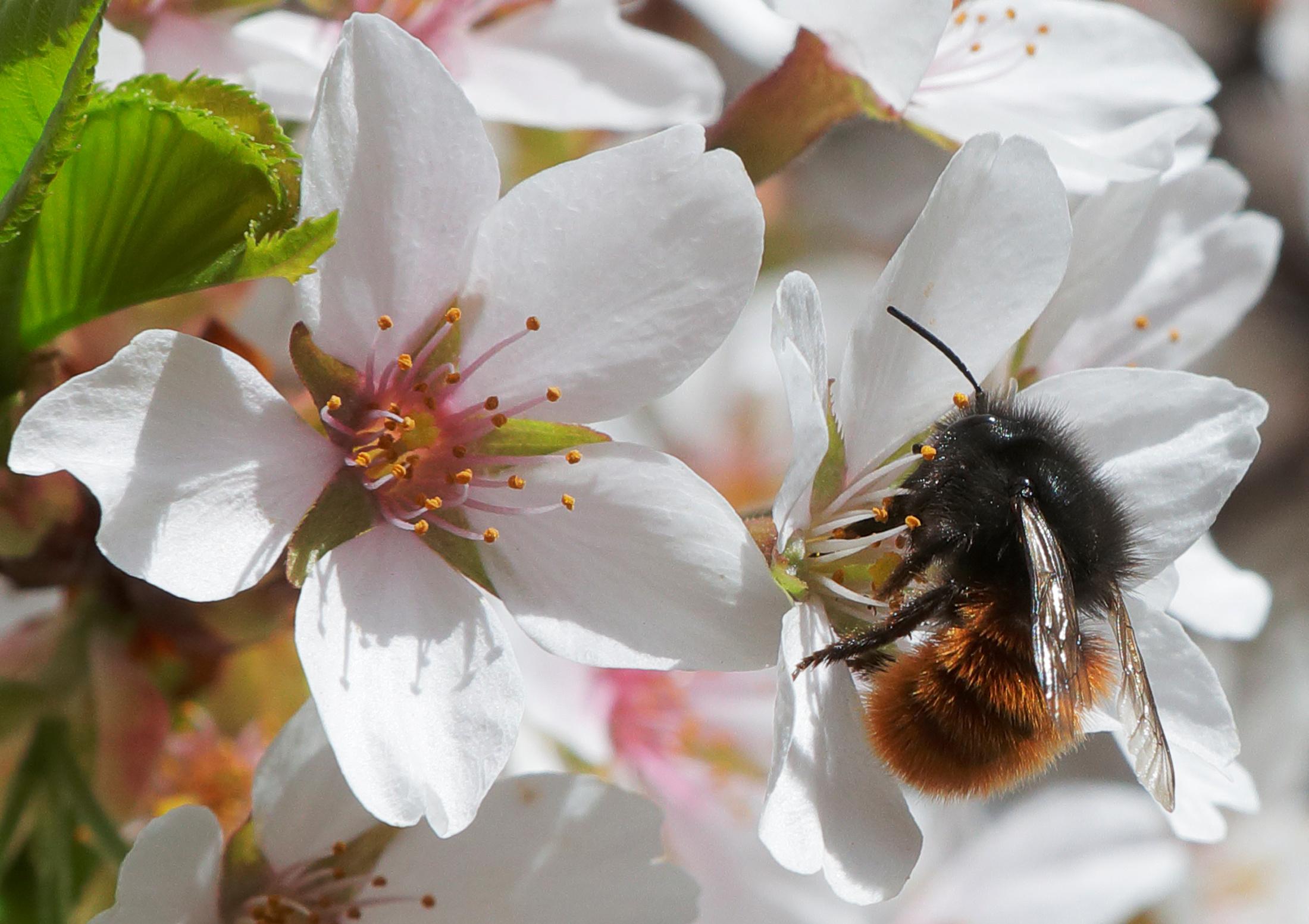Decline in bees puts supply of raw materials for global business at risk, says report
Businesses face the threat of declining bee populations and other pollinating species crucial to the development of crops

Your support helps us to tell the story
From reproductive rights to climate change to Big Tech, The Independent is on the ground when the story is developing. Whether it's investigating the financials of Elon Musk's pro-Trump PAC or producing our latest documentary, 'The A Word', which shines a light on the American women fighting for reproductive rights, we know how important it is to parse out the facts from the messaging.
At such a critical moment in US history, we need reporters on the ground. Your donation allows us to keep sending journalists to speak to both sides of the story.
The Independent is trusted by Americans across the entire political spectrum. And unlike many other quality news outlets, we choose not to lock Americans out of our reporting and analysis with paywalls. We believe quality journalism should be available to everyone, paid for by those who can afford it.
Your support makes all the difference.Businesses face a shortage of raw materials and a drop in the quality of crop as the number of bees decline worldwide, a new report warns.
Approximately three quarters of crops around the world depend on pollination, all of which could soon be threatened as more than a third of wild bee and butterfly species face extinction, according to a joint study by the UN, the University of East Anglia and the University of Cambridge Institute for Sustainability Leadership.
Major businesses, including Asda, the Body Shop, Mars and Pepsico, say they are unable to take action largely because of uncertainty around which crops and regions are vulnerable to the decline in pollinators such as bees.
“The role pollinators play – be it tiny midges for cocoa or squirrels for coconut – is not well understood and can be taken for granted,” says Jos van Oostrum, director of sustainable solutions at chocolate and confectionary maker Mars.
Cocoa, a vital ingredient in the production of chocolate, is at particular risk from a declining number of bees and other species that help spread pollen.
The risks of a shortfall in raw materials not only prove a challenge for food production, but also the sourcing of ingredients for beauty products.
“The importance of pollination for natural raw materials is increasingly a priority for us,” said the Body Shop’s sustainable sourcing manager Francesca Brkic.
“Bees are very important to us and we recognise the positive impact that comes out of sustainable trade to supply chains that depend on pollinators as well as communities who produce honey and beeswax as an integral part of their livelihoods.”
The UN also called for the introduction of new industry standards and policies that protect pollinating insects and animals to be put into place as a safeguard for raw materials and supply chains.
Join our commenting forum
Join thought-provoking conversations, follow other Independent readers and see their replies
Comments